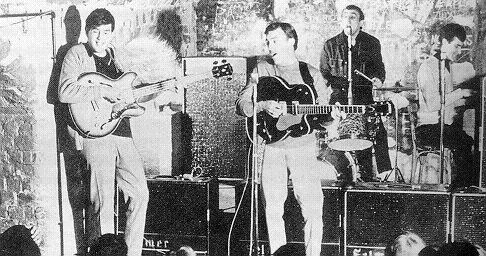| 1964 [GM 21-22] |
| 16 January. "I'm
the One" / "You've Got What I Like" [Columbia DB7189; UK
#2] |
| February. I'm the
One [UK EP, Columbia SEG-8311] |
| 16 April. "Don't
Let the Sun Catch You Crying" / "Show Me That You Care"
[Columbia DB7268; UK #6] |
| 3 May. Appearance on
the Ed Sullivan Show (CBS) to perform, "Don't Let the Sun
Catch You Crying" and "I'm the One" |
| May. Don't Let the
Sun Catch You Crying [Columbia SEG 8346. UK EP] |
| 3 September. "It's
Gonna Be Alright" / "It's Just Because" [Columbia DB7353;
UK #24] |
| December. It's Gonna
Be Alright [Columbia SEG 8367; UK EP] |
| 17 December. "Ferry
Cross the Mersey" / "You You You" [Columbia DB7437; UK
#8] |
| |
| 1965 [GM 22-23] |
| February. Ferry
Cross the Mersey [Columbia 335X 1693; UK LP] |
| 25 March. "I'll
Be There" (Darin) / "Baby You're So Good to Me" [Columbia
DB7504; UK #15] |
| 11 April. Appearance
on the Ed Sullivan Show (CBS) to perform "Ferry Cross the
Mersey," "It's Gonna Be Alright," "Why, Oh Why" |
| 18 November. "Walk
Hand in Hand" / "Dreams" [Columbia DB7738; UK #29] |
| |
| 1966 [GM 22-23] |
| February. "La
La La" / "Without You" [Columbia DB7835] |
| September. "Girl
on a Swing" / "Fool to Myself" [Columbia DB8044] |
|
| In 1967, Gerry Marsden went
solo and released a series of pop tunes, including a cover of a George
Formby song ("I've Got My Ukulele"). |
